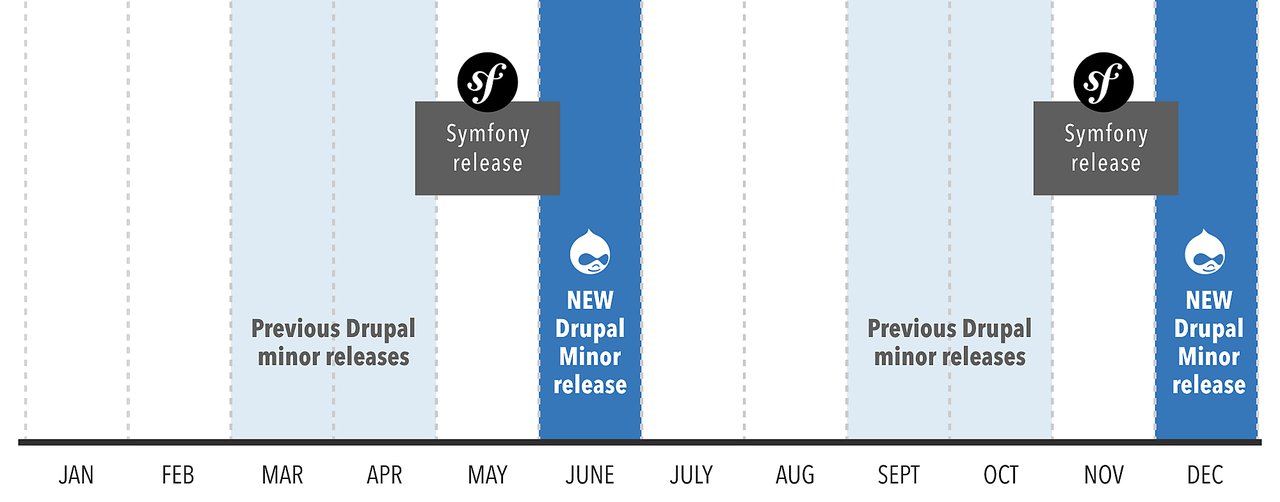Drupal is a great tool for building dynamic, scalable websites using community-created code and modules. But what happens when the community has yet to create a module with functionality needed for your site? You can create it yourself! Learn the basics of module development in Drupal 8/9 to remove the mystery behind how contributed modules work. Acquia's Drupal 9 Deprecation Status tool is available now to help companies plan the migration of their code from older versions of Drupal up to Drupal 9. While Drupal 9 provides a simple upgrade path from the latest version of Drupal 8, many organizations are still using Drupal 7 that expires in Q4 2021. Acquia will extend support for its.
With the imminent release of Drupal 9, it's a great time to give serious consideration to your update strategy. There is much to look forward to this time around, whether you are a Drupal veteran or new to the family.
The good news is that this will be a much easier process than the most recent major version updates, so if you've been using Drupal a while, this should come as a relief. However, It is important to note that while it is not a painful migration process, it's also more than just a few clicks away. Drupal 9 changes a few assumptions many of us are used to as Drupal site builders, but preparing now will take you far.
Drupal 9 is basically just Drupal 8 with updated dependencies and deprecated code removed, which makes for a fairly straightforward update process, but the devil is in the details.

Getting Started
First, there are some prerequisites you'll want to keep in mind.
- Your current site must be running on at least drupal 8.8 to upgrade. This means a fully up to date install.
- You must use PHP 7.3 or higher. Drupal 9 requires php 7.3
- In some cases, Drupal 9 needs a newer version of whatever database you're on now, so you may need to upgrade your database. See Environment requirements of Drupal 9 for details.
As you start looking for Drupal 9 compatible modules, you may find yourself a little perplexed as you browse modules on Drupal.org and notice that none seem to have a Drupal 9 compatible release.
They do, but it's a bit hidden.
Acquia Lightning Drupal 9
(Note that you do not have to look up every module you are using on Drupal.org. We'll get to a handy reporting and scanning tool shortly, but it's important to note these changes to how modules will work with Drupal 9.)

Getting Started
First, there are some prerequisites you'll want to keep in mind.
- Your current site must be running on at least drupal 8.8 to upgrade. This means a fully up to date install.
- You must use PHP 7.3 or higher. Drupal 9 requires php 7.3
- In some cases, Drupal 9 needs a newer version of whatever database you're on now, so you may need to upgrade your database. See Environment requirements of Drupal 9 for details.
As you start looking for Drupal 9 compatible modules, you may find yourself a little perplexed as you browse modules on Drupal.org and notice that none seem to have a Drupal 9 compatible release.
They do, but it's a bit hidden.
Acquia Lightning Drupal 9
(Note that you do not have to look up every module you are using on Drupal.org. We'll get to a handy reporting and scanning tool shortly, but it's important to note these changes to how modules will work with Drupal 9.)
The concept of modules being tied to a major release is old Drupal, and we're living in the future now. Modules can work with more than one major version of Drupal! So, you won't see a big highlighted box for a Drupal 9 release on module pages.
In the near future, you'll start seeing more module releases using semantic versioning on Drupal.org. A few are already there. The major version of core will no longer be part of the module's version number. You can see this in action on the semver_example module and on the Lightning project page.
Acquia Dev Desktop Drupal 9
Evaluate Your Site
Once you have met the requirements to run Drupal 9, the next step is to evaluate your site. The first course of action is to update all modules to the latest version. There's a good chance they're already D9 compatible. Then, check for deprecations in your themes, contrib modules, and custom modules.
Deprecations are old Drupal 8 functions which have been removed from Drupal 9, and you'll need to find them to replace them with up-to-date code. To do this, I recommend starting with the Upgrade Status module. This module will scan your codebase for deprecations and provide you with a handy report. Install it in your development environment, and note that it must be installed with composer.
Once you've enabled Upgrade Status and navigate to its report at admin/reports/upgrade-status, you'll see some important information about your environment that will indicate your ability to run Drupal 9.

